
As a longtime fossil collector, I became acquainted with one of the mothers of all fossil-bearing rocks during an Osher Lifelong Learning Institute (OLLI) workshop. I was instantly attracted to this rock’s important role in shaping mankind’s history.
I have seen many collections of area artifacts made from this material. Then, I learned that a mother lode outcrops in the crags around Sedona and the Verde Valley of Arizona, where I now reside. That discovery prompted my examination of this rock’s value in preserving extinct and still-living fossil groups that appear worldwide from the Permian to the Precambrian. The rock in question? Chert — a mother rock for the ages.
CHERT’S VISIBLE INVISIBILITY
The scenic backdrop to Sedona is packed with zillions of chert nodules hidden in the magnificent limestone vistas of one of the most famous of all vacation spots in the world. Nevertheless, it’s the red rocks that galvanize viewers. Casual observers may notice the buff-colored Kaibab plateau rising into the sky, a grand escarpment that forms the uppermost portion of the Permian stratigraphy in the Sedona-Oak Creek Canyon area.
Even fewer observers, however, understand that the red rock vistas along Highway 89A owe their preservation to the ordinary limestone rocks jutting high above them. These Permian strata were last deposited 270 million years ago from the skeletal remains of aquatic glass sponges that were transformed into the cryptocrystalline quartz known as chert. Here and there, an occasional caprock of basalt is barely noticeable, recording a final volcanic episode.
This story is from the March 2020 edition of Rock&Gem Magazine.
Start your 7-day Magzter GOLD free trial to access thousands of curated premium stories, and 9,000+ magazines and newspapers.
Already a subscriber ? Sign In
This story is from the March 2020 edition of Rock&Gem Magazine.
Start your 7-day Magzter GOLD free trial to access thousands of curated premium stories, and 9,000+ magazines and newspapers.
Already a subscriber? Sign In
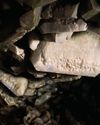
Rockhounding Ohio's Lake Erie Islands
A short ferry boat ride three miles from Ohio’s Lake Erie coastline is South Bass Island, better known as Put-in-Bay or the “Key West of the North.”
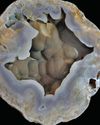
Iowa's Hidden Treasures
Exploring Keokuk Geodes: How They're Made & What's Inside
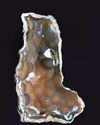
Agatized CORAL
Florida's Collectible State Stone
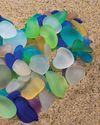
Rockhounding Florida's Beaches
Beachcombing serene stretches of Florida can reveal fascinating finds like fossilized shark teeth, sea glass, quartz, agate and even coral fragments.
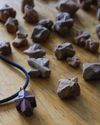
Collecting Staurolite
Hot Spots In Virginia & Georgia
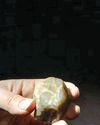
Pecos Valley Diamonds
New Mexico's Ancient Attraction

12 Tips for Rockhounding Tucson's Greatest Shows
Tucson in February becomes the international hub for buying and selling colored gems, rocks, minerals and fossils.
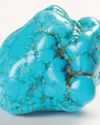
Turquoise in the American Southwest
A Water & Sky Souvenir
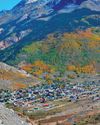
Touring Colorado's MINERAL BELT
It's a Showcase of Mining History & Minerals
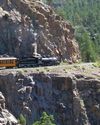
Geology &Colorado's Taurish Traiks
Most of Colorado’s tourist trains today were originally constructed in the late 1800s to serve the state’s lucrative mining operations.